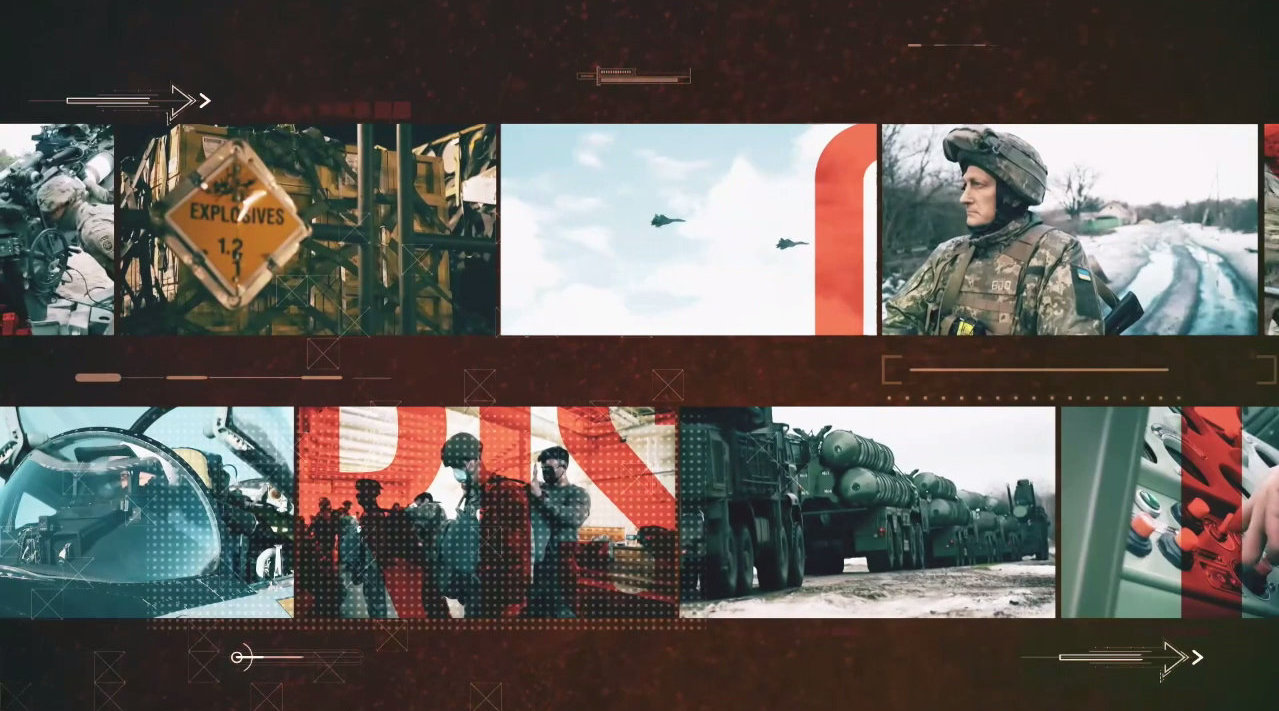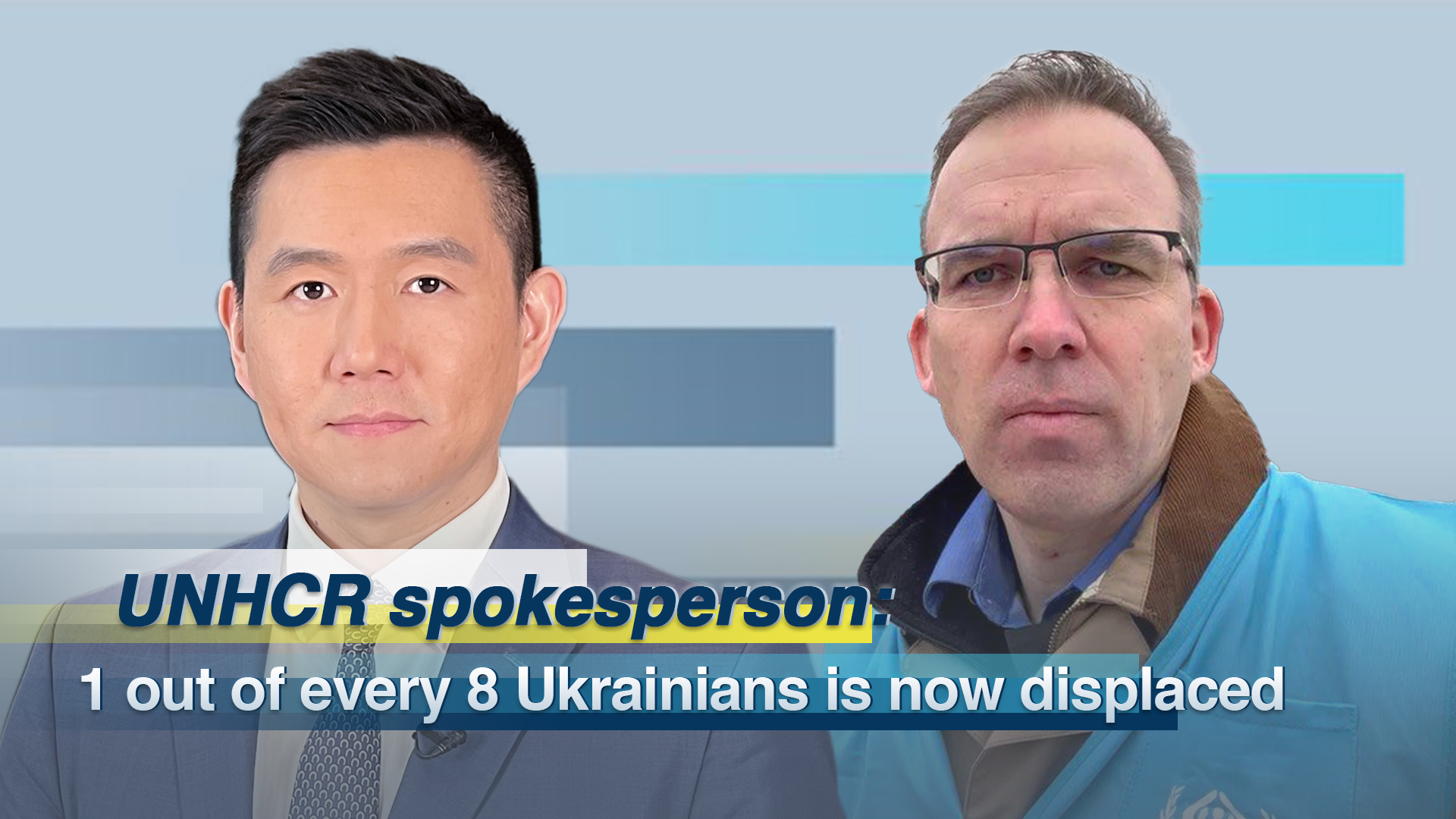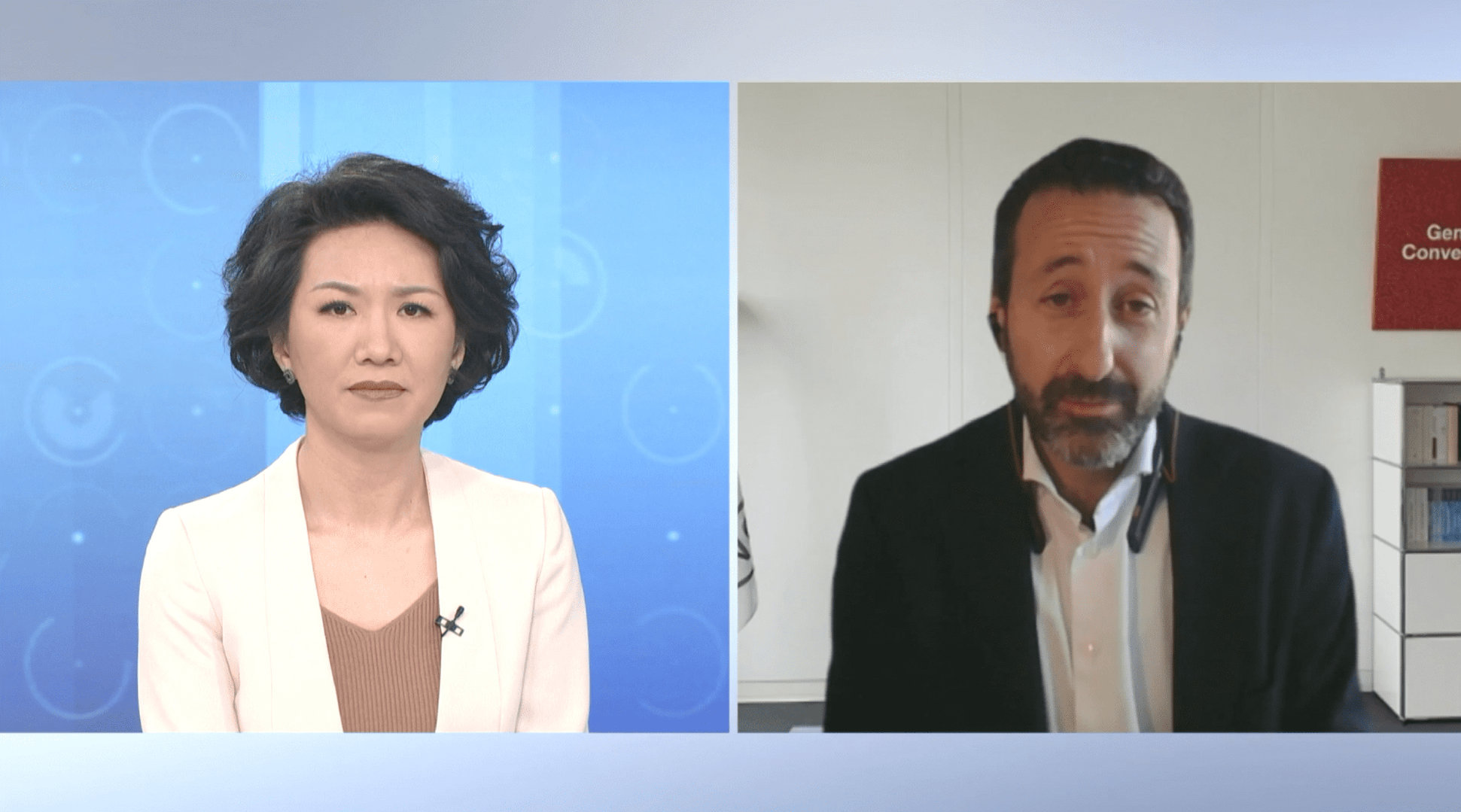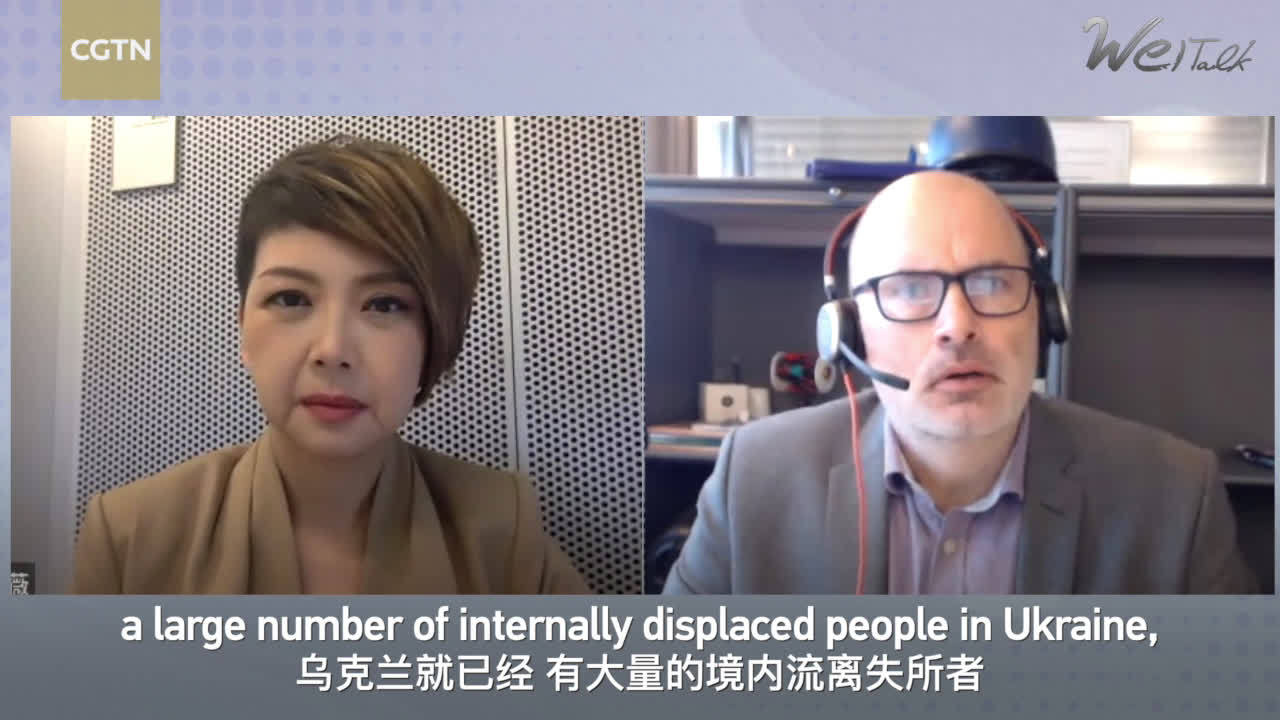Editor's note: John Gong is a professor at the University of International Business and Economics (UIBE) in Beijing and a research fellow at the Academy of China Open Economy Studies at UIBE. The article reflects the author's opinions and not necessarily those of CGTN.
While a disastrous humanitarian crisis in Ukraine is unfolding before the eyes of the international community, the relevant parties at the United Nations are still bickering over the exact wording of the UN humanitarian resolution.
Women and children are suffering in Ukraine. Yet diplomats sitting in comfortable compounds in Geneva are still debating over three resolutions proposed so far: the Russian resolution, the France-Mexico resolution, and the South African resolution. James Elder, a spokesperson from UN Children's Fund, has emphasized the ignored situation of vulnerable groups in the crisis and his work for helping them during his talks with CGTN anchor Tian Wei.
02:17

The Russian side has withheld the vote of its resolution at the UN Security Council, expectedly due to the lack of support. Russia's first deputy permanent representative to the United Nations, Dmitry Polyansky, referred to his country's resolution as not being a politicized one but guided by the principles of humanity.
The resolution on the Ukraine-Western side, led by France and Mexico, makes clear the aid crisis is as a result of Russia's "special military operations" in Ukraine. It insisted these words be inserted. Facing the clear prospect of a veto by Russia at the UN Security Council, France and Mexico decided to take their humanitarian resolution to the 193-member General Assembly.
And then finally there is the South Africa resolution that is similar to the Russian text, and specifically makes no mention of Russia's military operations in Ukraine, proposed before the Security Council this week.
All of these diplomatic maneuvers in high places pale in comparison with the real humanitarian actions happening on the ground in face of the massive miseries and hardship experienced by the Ukraine people. Over 5 million Ukrainians have been displaced from their residences, and 3 million have escaped out of the country. Many countries and international organizations have poured in resources and money trying to help those Ukrainians badly affected. In the interview with CGTN anchor Wang Guan, the United Nations High Commissioner for Refugees spokesperson Chris Melzer has described the seriousness of the refugee crisis in Ukraine.
03:37

The United Nations High Commissioner for Refugees, the International Committee of the Red Cross, and other organizations are putting people and resources on the ground trying to help. CGTN anchor Liu Xin's interview with Robert Madini, the director-general of the International Committee of the Red Cross (ICRC), confirmed the view.
03:44

Like many other countries, China is also doing its share. In addition to the first wave of humanitarian materials already sent in, China's Foreign Ministry spokesperson announced the other day that China would pitch in another 10 million Chinese yuan of aid to Ukraine. More is likely to come, as the situation in Ukraine worsens.
China's stance on this humanitarian issue is very clear and resonates with the United Nations' stance. During a press conference on March 7, China's Foreign Minister Wang Yi proposed a six-point proposal regarding this issue, the first of which regards the non-politicizing of humanitarian assistance.
In fact, the United Nations has two General Assembly resolutions dedicated to this issue, advocating the principles of humanity, neutrality, impartiality and independence. Resolution 46/182 adopted by the UN General Assembly in 1991 addresses the first three principles, followed by another General Assembly resolution 58/114 in 2003 that addresses the last independence principle.
Humanity means that human suffering must be addressed wherever it is found, such as in Ukraine at the moment. Neutrality means that humanitarian actors must not take sides or engage in controversies of a political, racial, religious or ideological nature.
Impartiality means that humanitarian action must be carried out on the basis of need alone, making no distinctions on the basis of nationality, race, gender, religious belief, class or political opinions. As Matt Saltmarsh, head of news and media for the UN refugee agency, said in the interview by CGTN anchor Tian Wei, "when there is a conflict, our duty is impartiality, and it's the humanitarian imperative."
02:59

Independence means that humanitarian action must be autonomous from political, economic, military or other objectives. Clearly at least two of the four principles here would be interpreted as intending to not politicize humanitarian assistance.
However, that is precisely what some diplomats in Geneva are doing with respect to the UN humanitarian resolution by entangling it with politically charged words. Nevertheless, the international community will judge by deeds, not words.
The international community should indeed provide more humanitarian assistance to Ukraine, including accepting and accommodating more refugees fleeing the country. In that regard, both the U.S. and the U.K. need to step up greatly, instead of just providing weapons, ammunition and rhetoric.
(If you want to contribute and have specific expertise, please contact us at opinions@cgtn.com. Follow @thouse_opinions on Twitter to discover the latest commentaries in the CGTN Opinion Section.)

